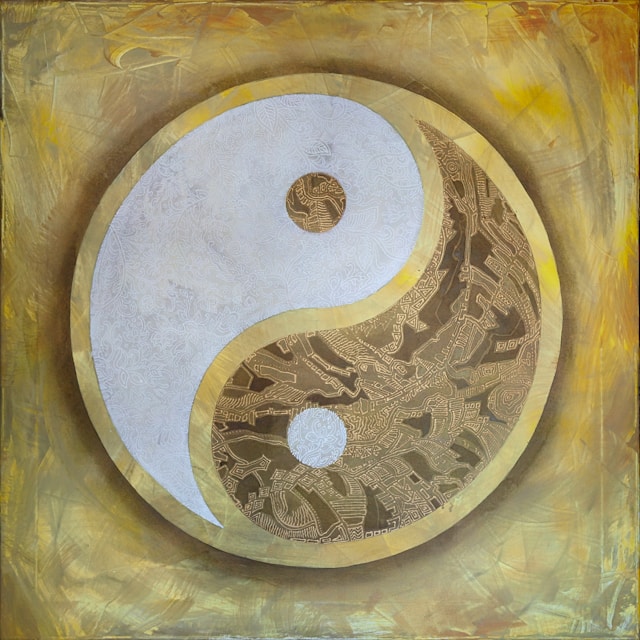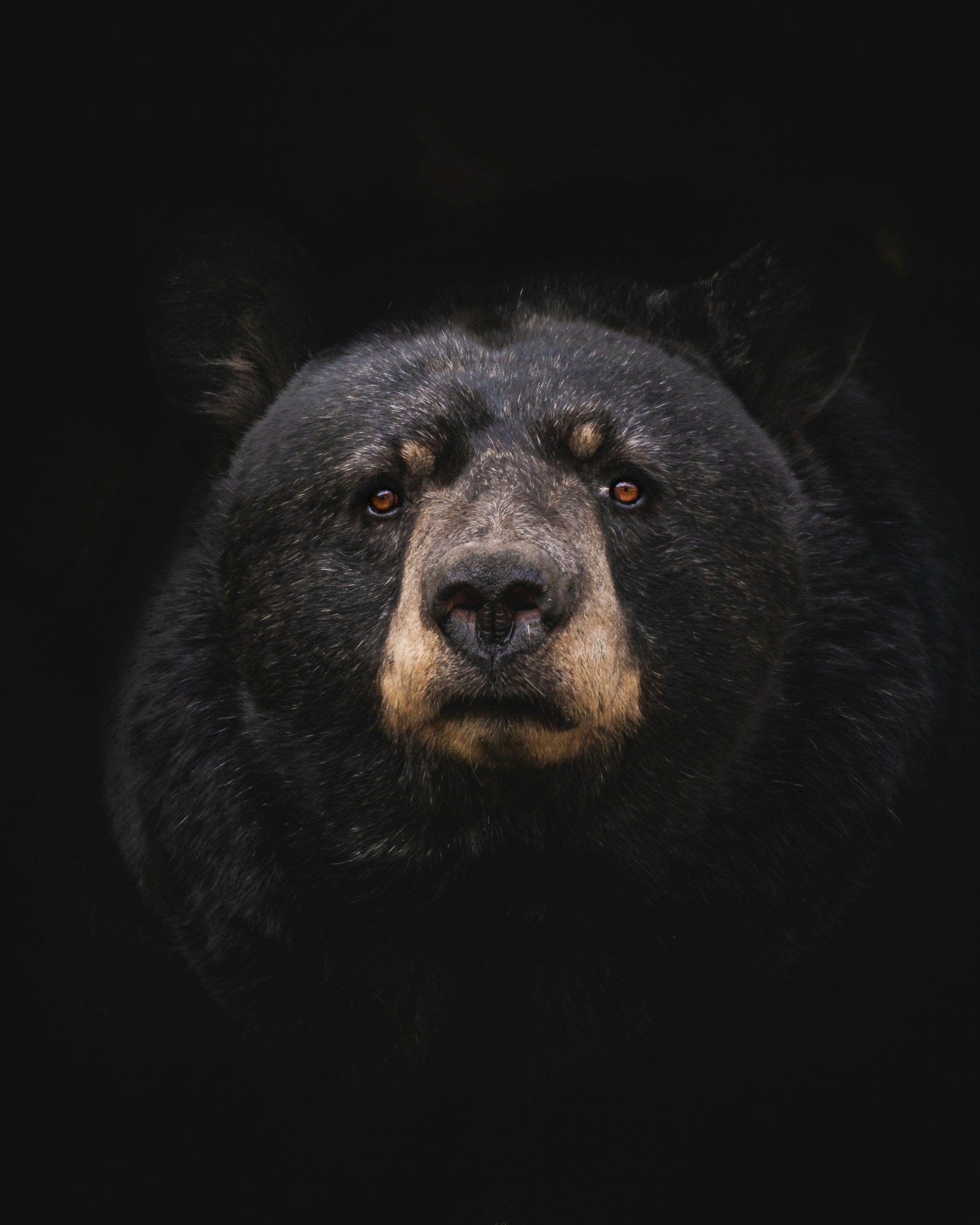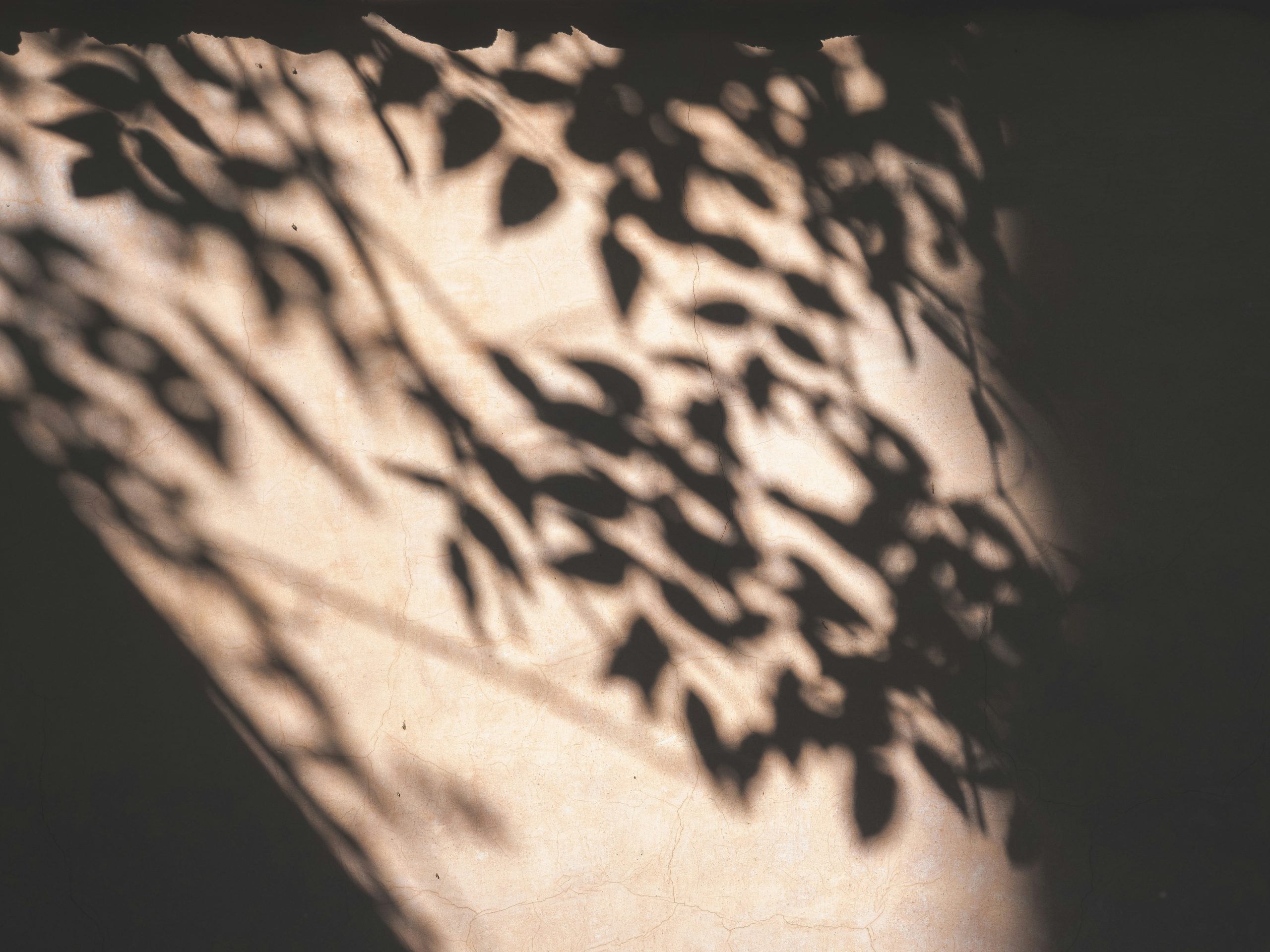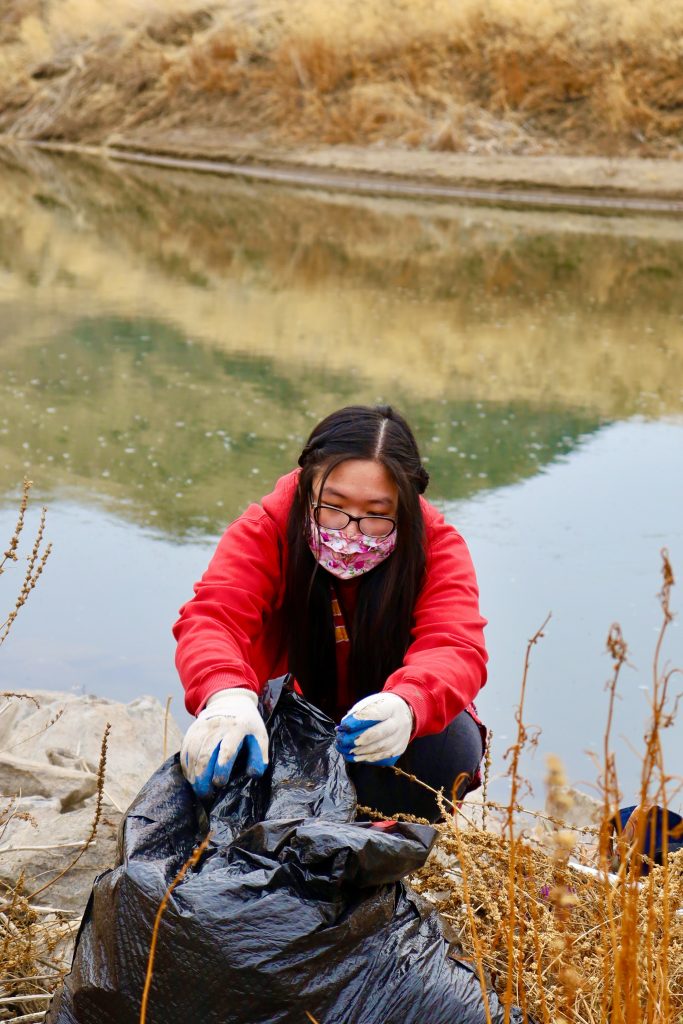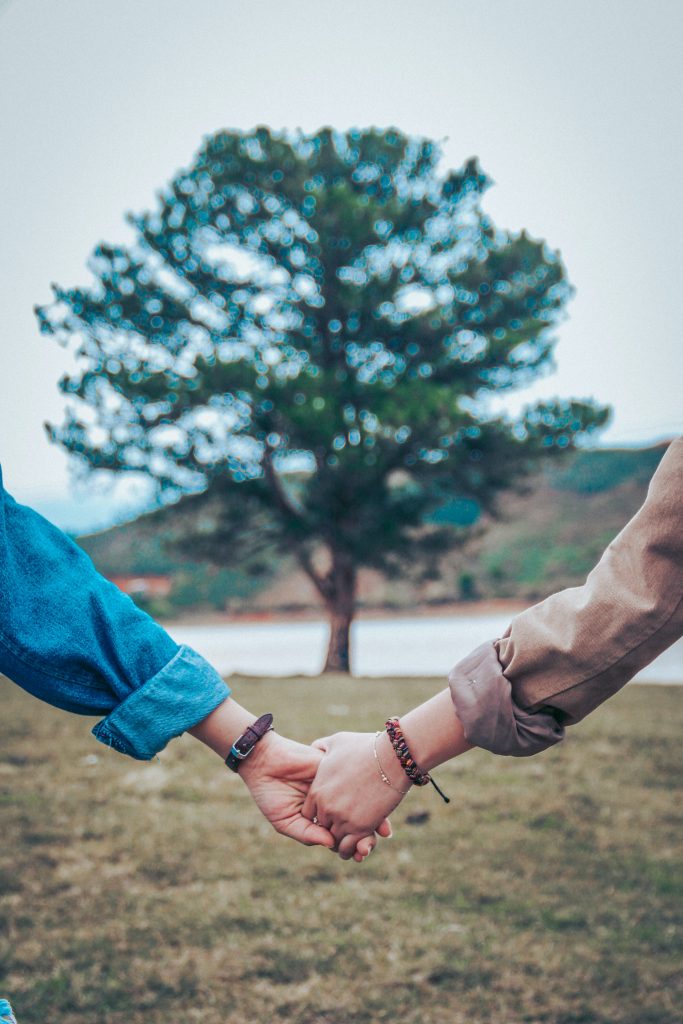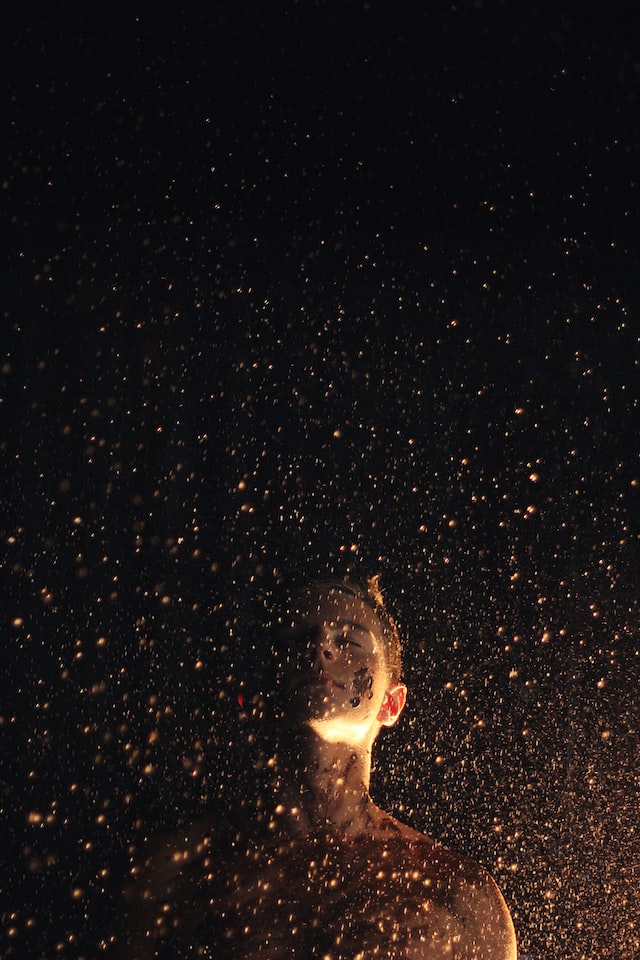Note: This was written with an audience of men in mind. Anyone is welcome to read it, but people who aren’t men might feel triggered by some of the content as it touches on themes of domination and violence, and has a compassionate tone that is sometimes triggering for people who have too often been compelled to set aside their own hurt and feelings and instead be compassionate toward men. If you are such a person, I am not asking you to do that, and I encourage you to take care of yourself.
Once, I chased away a black bear. It was a bright dry day in the New Mexican mountains, a mixture of desert and pine, where I worked as a backpacking instructor for a Scouting camp. We taught participants to be meticulous in bear safety—never leave out anything unattended that might attract bears, and avoid getting involved with them. For staff, we were given the extra task—if you see a bear getting too close to your camp, chase it away.
This was for the safety of both bear and human. Bears drawn to human encampments for food are naturally then more likely to have hostile encounters with humans. I’d heard stories of bears going into tents at night—I don’t know how true those were, but clearly that would be a problem. Bears that were too familiar, too drawn to humans, would therefore have to be put down by those monitoring the bear populations.
So it was a bright afternoon and I saw the black bear close to camp. I told my crew to stay together and ran toward the bear. It backed away several feet, but then it paused to look back at me, as though to see how committed I truly was. So I ran at it again, making my body big and shouting as I was taught, and the bear backed off several more feet, then paused. We did this three or four times before the bear finally wandered off, and I felt I’d done my due diligence.
Few animals are interested in getting into an unnecessary fight. We have all kinds of signals to let potential predators and competitors know we’re going to be a problem for them if they keep encroaching on our territory. We can hiss, we can bare our claws and teeth, and we can do this kind of feinting aggression—a lot of creatures do it, appearing to aggress at you only to back off before making contact. It’s a way of negotiating space and making a contract. If we have to fight, we’re going to fight, but we’re both going to get hurt and many animals can’t afford unnecessary hurt. So they’re not going to actually fight unless they’re desperate, wounded, or you’re a threat to them or their young. You have to know what you’re dealing with, however—you can chase away a black bear, but doing that with a grizzly is going to get you into trouble.
Chasing off a black bear is one of those stories I milked for a while. It was scary—I wasn’t sure if I would succeed or if I’d get in some bad trouble, but it felt amazing when the bear backed off and did what I hoped it would do. It felt so good to protect my crew, to keep the bear safe. There is so much pleasure in being a protector, especially when one is seen by others and feels their gratitude. So many men gravitate to this role, to this way of being valuable and of service to their community and loved ones, and take on so much hurt and damage in our efforts to protect. If we can feel in integrity and receive gratitude, it feels worth it.
But what about when we’re judged for our protectiveness? What about when we fail? What about when we’re told what we’re doing is unwelcome, though we still believe to our bones we need to keep them safe? What about when we’re told we’re not protectors, we’re actually harmers and abusers? That feeling is terrible. There is so much shame, and guilt, and resentment, and failure, that it’s almost inevitable we’d get defensive and bring everything we can to bear against that accusation. So many men don’t think of ourselves as the predator, we think of ourselves as the protector.
When we are really young, all we really want is to belong, to be loved, to be safe, and to get to be ourselves. When our kid selves experience being hurt, cast out, ridiculed, humiliated, sometimes they hold onto the pain and shame of those experiences. To my mind, kids are just innocent, even when they’re acting like assholes. They need adults to love, protect, and understand them, and it is a sorrow of life how often even the most well-meaning adults are not able to do that to the extent kids need.
Those young needs stay with us all of our lives, along with the hurt and judgment those young parts take in when their needs go unmet. We are like trees who age by growing new rings around the old. All of those younger ages are still contained within the trunk, and when you look inside you can still see the wounds they suffered and how those affect the later growth of the tree. We grow new layers of safety and protection to hide, but not heal, those wounds, and those protections add much of the richness of life. They’re not intrinsically bad. They mean well. And they can be unbalanced, and cause harm.
Becoming a feminist, for me, was a ring I grew around a young part of me that saw the women in my life, whom I loved, being hurt by men. I felt their hurt so keenly that I wanted to protect them as much as I could. Yet I was actually much younger than them, and I needed protection itself, and no one knew this was happening and had the clarity to tell me it was not my responsibility.
As a result, my continued growth took the shape of a person who feels much more protective of others than myself, much more concerned about their hurts and needs than my own. My story was, “I can handle anything, but I can’t believe they’d do that to you.” To my mind, it was noble to bear the suffering you would not allow for another person, so I developed the strange capacity to be able to speak up for others’ issues and problems with a lot of courage and yet remain terrified and anxious when it came to asking for something I needed.
This protectiveness was perhaps valuable, and yet it contained an inability to recognize the power and agency of those I decided to protect. In that protective state, I was unable to step back and ask—does this person want my protection? Are they asking me to speak on their behalf, or help them to advocate for themself? Are they truly confused and making bad choices, or are they dealing with their problems in a way that would totally make sense if I humbled myself enough to be curious? Do they even see this as a problem that needs protection?
When you get really fused with that way of being in the world, when you feel you are the protector and it’s all on you, then it’s easy to start to turn on the people you’re protecting. Here you are trying to keep them safe and somehow they just keep making the same stupid choices. They throw themself into the danger you just rescued them from. They seem ungrateful, ignorant, and heedless of your sacrifice. So then it starts to seem like a normal and comprehensible next step to start protecting them from themself—to control their movement, to limit their choices, to harangue and undermine them. And all the while, internally, you still feel that earnest desire to help. But from the outside view, your behavior is abusive.
When we’re really identified with our protector and we hear this—that others may see us as no different than the violent men we’d protect them from—it is devastating. Suddenly we feel all those little kid parts again who learned they were unworthy, they were embarrassing, they were unwanted. We are kids stuffed into adult suits. Emotionally we are acting as any kid would—wanting to be loved, wanting a hug, wanting reassurance and care, or pushing away what feels threatening and scary. But our little kids don’t know they’re in adult bodies, so they don’t realize those bodies have more power and impact. So they’re not pushing with the force of a toddler, but rather the force of a man.
Being a man is the greatest risk factor for experiencing violence or homicide. Three in four homicide victims are male. Yet collectively we have not organized around that risk the way other targeted communities do. It’s possible this is in part because men are also most likely perpetrators of violence—almost 80% of murderers are male. Most of us grow up in worlds where the threat or experience of violence is normalized.
As a closeted gay kid, I thought I was uniquely attuned to this—once I heard my friends, guys my age, making comments about “bringing a baseball bat to prom” because an openly gay classmate was planning to go with his boyfriend. But now I think that threat of violence extended to all boys and men who fell out of the narrow and confusing lines of acceptable male behavior. So being gay was obviously gay, but sometimes recycling is gay, or wearing nail polish—unless you’re a mixed martial arts fighter. Even without violence, there is the threat of violence.
Protecting myself from violence is so ingrained in me that I almost forget how much I think about it. When walking alone at night through dark places, I’ve learned to walk with upright posture, open senses, hands out and ready to respond. I’ve avoid looking at my phone, wearing headphones, anything to suggest I’m inattentive to my surroundings. I walk like I know where I’m going because I know appearing lost and confused makes me a target for predation. This has been so much in my mind that the times I have been stolen from I usually blame myself before I feel angry at anyone else. It’s my own fault! I knew better than to leave my backpack in the backseat where anyone cold see it. I knew I should’ve taken that expensive headlight off my bike when I locked it outside.
Confronting our own capacity for violence and relationship to force is a task I believe all men—really all humans—need to take on at some point in our lives, especially if we want to become powerful. Jordan Peterson, a Jungian-informed psychologist who offers guidance to young men and someone with whom I frequently and forcefully disagree, has said it thus: “[a man] should be a monster, and absolute monster, and then you should learn to control it.” When we disown our own violence, Peterson suggests, we may be naive and resentful of the ways others take advantage. Claiming and training our capacity for power and violence helps us to stand up for ourselves, set clear boundaries, and make moral choices. Instead of our capacity for violence leaking out in reactive ways—our little kids in adult suits lashing out—we know our power and use it on purpose.
Peterson and I would wholeheartedly disagree about a number of things—he would want me imprisoned for supporting transgender people access medical care—but here he is speaking of what is broadly understood to be “shadow work” in Western spiritual communities, drawing upon Carl Jung’s insights into the shadow as the parts of us that get disowned. Until we can turn toward, witness, and accept our anger and capacity for violence and cruelty, we have no real control over it. We are either useless in our fear of power, or we act out our power covertly and avoid taking responsibility for the harm we cause. Doing this shadow work includes facing the guilt and shame we feel over our capacity for violence, and facing the impulse to avoid that guilt and shame through inflating ourselves with ego-flattering stories of being a hero and valorizing violence.
Once I was working at a community mental health agency with clients who were on probation, corrections supervision, or otherwise had criminal charges. I loved this work and the clients and rarely felt concerned for my own safety. Clients may have been frustrated and angry with me, and a couple made scary-sounding threats, but there was always a sense of a line between us that would never be crossed.
Except one time when someone did. It wasn’t my client but someone who’d been discharged and came in crisis. We sat down and I re-enrolled them in services and set them up with appointments to get care, but the client was very difficult to engage. He kept getting off-task or making weird inappropriate comments. At one moment, he leaned in, reached his hand out, and slapped me on the cheek. It wasn’t hard enough to hurt me, but it was enough to sting. It was a deliberate intrusion. It was a test.
I leaned back and looked straight at him, soberly. “Do not touch me again.”
He raised his pale hands in feigned shock, clearly making fun of me and pretending he was so surprised by my response. I decided we’d accomplished all we could that day and told him it was time to go. We stood to leave, but he disregarded my direction and walked the other way, toward a staff door.
That’s when I felt scared, because I knew I was not in control of the situation. I had clients who had murdered people, and worst, but who respected my role and followed directions. This guy was unpredictable, clearly fed off my reactions, and I had no other moves. Fortunately another staff person was in that office, and together we guided the client to turn around and go out the clearly marked exit door, but I still had to go outside to give him his appointment card.
I remember it was an overcast Seattle afternoon, not cold or rainy, but grim. I handed him the card, relieved he wasn’t my client, and told him the next steps with some distance between us. Then he raised his hand and punched toward me as a feint, stopping before it made contact. My body remained still and I held eye contact with him. Something in my sensed that he wasn’t going to hit me, but if I flinched then it would escalate him. I held my stance, and we both walked away safe that day.
As a gay feminist, as a little kid growing up into an adult male suit, it didn’t really occur to me until my twenties that I might be part of the problem. I’d gone back to a high school friend’s wedding, feeling weird being around some of the jock guys I didn’t know in school. I’d viewed them suspiciously, as potential bullies and sources of violence, having not ever gotten the chance to get to know them and only going after my own fear, biases, and self-protection. I wanted to seem cool and together and not a loser anymore, but I was still making a mess out of my life and uncertain where to go with a career. But I ended up talking to some of those guys and started to really see that no one gave much of a shit about our old roles. They treated me like another guy, and it felt great.
I said hello to a woman friend of mine from school who’d worn this beautiful dress that exposed her shoulders. I put both hands on her shoulders and squeezed them in a familiar way. Moments later, I had this thought—“Would I have touched her like that if she were a man?”
The question hooked into my brain. What made me think that she wanted or appreciated that kind of touch? What did it mean that I would touch a woman in a friendly way that I’d never consider doing with a man? The only times I touched men were awkward hugs or sex. Friendly touch was not yet in my vocabulary of social connection. Mostly parts of me feared that a man would respond to that kind of touch with violence.
I started to realize I was walking through the world in an adult white man suit, and from the outside a stranger would experience me with the protections of mistrust and caution through which I viewed most men. Casual touch could no longer be innocent and thoughtless, it needed to happen in a relationship of consent and care. Years and years later, in my martial arts community, I now have male friends who do share that kind of friendly touch. It was strange and confusing to me at first, but completely straight men seem totally okay giving and receiving affectionate touches on the shoulder, rubbing each other’s backs, and hugs. Perhaps it’s because we’re facing the monsters within and now we have nothing to prove.
If we could sit together, and you were having your feelings that a woman would rather be in the woods with a bear than with a strange man, I would want to tell you I completely get it. I get how sincere is the desire to be a protector, how much we long to celebrate our good intentions, and how painful it is to be cast as a villain even if only by association. I get how those little kids inside of us only want to love and be loved and how painful it is to feel like we’re never enough, we’re never doing enough, or that we’re intrinsically monstrous.
I want us all to look in the mirror and invite every part of us to see the adult men we’ve become. I want those scared little kids to see that they now have an adult—they have you—whose job it is is to love and care for them, keep them safe, and help them find the places where they can belong and be loved. I want those wonderful fighters and fixers and figuring-out parts of us to see the strength and power of your body and mind, to cultivate those powers if it’s their will, and to know it’s not their job to fix the entire world. I want all of those parts to know it’s safe to allow others in your life to struggle, to make choices, to have feelings and opinions you dislike, but it’s not your job to make them different any more than it’s their job to make you different.
I want that permission to be okay exactly as you are, and to allow others to be okay as they are, to let you let yourself off the hook, so you can really listen to all the parts of you and make the choices that are right for the whole team. So you can know your heart and your own good intentions and you don’t have to change or fix the reality that some people will think you’re scary at first, or may be guarded around you because of your body. Letting their experiences be, without making yourself wrong, without making them wrong, is what allows them to trust you. Knowing you are capable of violence and not doing it is what makes you safe.


